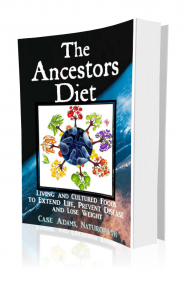Fried Foods Linked to Prostate Cancer Incidence
Research from Seattle’s Fred Hutchinson Cancer Research Center has confirmed other research that finds that fried foods substantially increase the risk of prostate cancer.
The researchers tested 1,549 cancer patients together with 1,492 control subjects. The researchers conducted food frequency questionnaires and then calculated associations between various fried foods and cancer risk.
The research found that eating one or more meals with French fries per week increased the risk of prostate cancer by 37%, while eating one or more meals with fried donuts increased the risk of prostate cancer by 35%.
Eating one meal of fried chicken per week and one meal of fried fish in a week increased the risk of prostate cancer by 30% and 32% respectively.
An even greater link was found between fried foods and aggressive prostate cancer – at 41% increased risk.
The researchers concluded:
“Regular consumption of select deep-fried foods is associated with increased PCa risk.”
In this article
Frying and Western diet linked to prostate cancer in other studies
This was confirmed in research from the University of Southern California Keck School of Medicine, which studied 1,857 prostate cancer patients together with 1,096 non-cancer control subjects. After reviewing their diets, they found that those who cooked fish with either pan-frying or grilling at high-heats “until fish was well done” had increased risk of advanced prostate cancer.
Fried foods are a typical part of the western diet. Research from the University of Western Australia found this in a study of 546 prostate cancer patients and 447 volunteers (non-cancer). The researchers tested each with a food frequency questionnaire tracking diet back ten years.
The researchers found three diet patterns from the study – which were the “Western pattern,” the “vegetable pattern” (high consumption of plant-based foods) and the “health-conscious pattern.”
The researchers found the “Western diet pattern” increased the incidence of prostate cancer by 82%.
Researchers from the Technical University of Denmark used large population cancer studies and diet data to calculate the various risk of meat cooking and prostate, colorectal, pancreatic or breast cancer risk. They found that barbequed and fried meat caused the highest incidence of these cancers.
Heterocyclic amines likely culprit
One of the reasons for this increased prostate cancer risk from frying comes from the production of heterocyclic amines. These are produced when foods are fried. A study from the University of California studied more than 25,000 people and found the average 175-lb American will eat an average of 715 nanograms of heterocyclic amines per day. They also found that about 67% of this amount is 2-amino-1-methyl-6-phenylimidazo[4,5-b]pyridine (PhIP).
They also found that pan-fried meats had the highest amounts of heterocyclic amines, and fried chicken had that largest heterocyclic amine levels among the different fried meats.
They also found that African Americans had the highest consumption of heterocyclic amines. The researchers stated:
This difference in PhIP intakes may at least partly explain why prostate cancer (PC) kills approximately 2-fold more African American than white men, in view of experimental data indicating that PhIP mutates prostate DNA and causes prostate tumors in rats.”
French fries and donuts – and other foods fried in oil – also contain heterocyclic amines, although different ones than those produced from fried meats. Heterocyclic amines found from frying in soybean oil, for example include 2-amino-3-methylimidazo[4,5-f]quinoxaline (IQx) and 2-amino-3-methylimidazo[4,5-f ]quinoline (IQ).
Other prostate articles:
Ayurveda for prostate
Herbs for enlarged prostate
Mushroom therapy
TCM and Acupuncture
Polyphenol foods
REFERENCES:
Ambrosini GL, Fritschi L, de Klerk NH, Mackerras D, Leavy J. Dietary patterns identified using factor analysis and prostate cancer risk: a case control study in Western Australia. Ann Epidemiol. 2008 May;18(5):364-70. doi: 10.1016/j.annepidem.2007.11.010.
Joshi AD, John EM, Koo J, Ingles SA, Stern MC. Fish intake, cooking practices, and risk of prostate cancer: results from a multi-ethnic case-control study. Cancer Causes Control. 2012 Mar;23(3):405-20. doi: 10.1007/s10552-011-9889-2.
Weisburger JH, Wynder EL. The role of genotoxic carcinogens and of promoters in carcinogenesis and in human cancer causation. Acta Pharmacol Toxicol (Copenh). 1984;55 Suppl 2:53-68.
Berjia FL, Poulsen M, Nauta M. Burden of diseases estimates associated to different red meat cooking practices. Food Chem Toxicol. 2014 Apr;66:237-44. doi: 10.1016/j.fct.2014.01.045.
Bogen KT, Keating GA. U.S. dietary exposures to heterocyclic amines. J Expo Anal Environ Epidemiol. 2001 May-Jun;11(3):155-68.
















